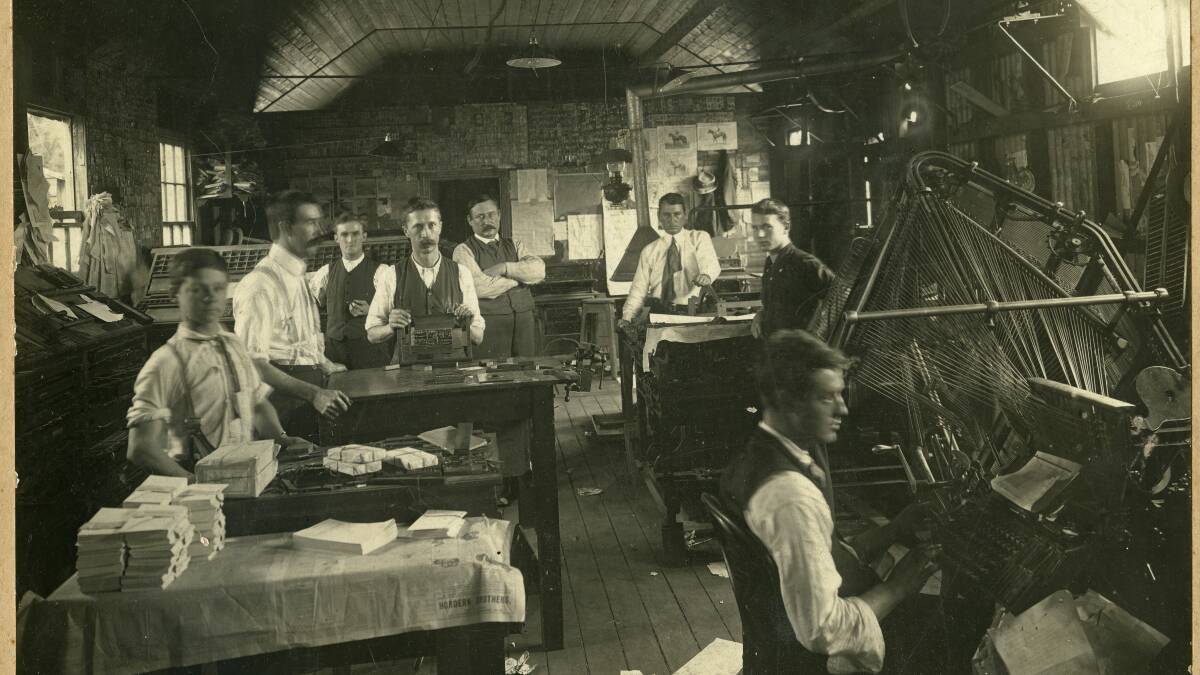
A rare set of the Dungog Chronicle dating from its foundation in 1888 to the late 1970s is being preserved by archivists at the University of Newcastle.
Subscribe now for unlimited access.
$0/
(min cost $0)
or signup to continue reading
Gionni Di Gravio has been working on the labour of love for several years after being contacted by an elderly member of the Bennett family – the paper’s founders – offering to donate the papers.
What started as an old fashioned letter writing correspondence between the two men lead to Mr Di Gravio requesting to speak on the phone about the collection.
“In the end I said just give me a call and they had to go to the top of a mountain to get a signal,” he said.
“They were remarkable, truly wonderful people.
“Not only did we get the copies of the Chronicle but they also donated their photographs, personal letters and correspondence of three generations of news men and women.
“It is quite an immense collection”.
The newspapers were all loose copies with each year wrapped. The papers from 1888-1891 were in a box and are quite patchy.
Mr Di Gravio said the find stressed the importance of a local newspaper to its community.
“These words are important,” he said.
These words are important. You can see a bit of Dungog in these papers.
- Gionni Di Gravio.
“It is important to keep. You can see a bit of Dungog in these papers.”
Mr Di Gravio said he still had a huge task ahead of him sorting through the material and archiving it.
“It is like bringing order out of chaos,” he said.
“I am still sorting through it all, it is quite a job, sorting them all into branches.”
He said there was enough work in the Dungog find for 500 archivists to work on. The university was engaging students involved in the work to integrate them into the learning process.
“This is a form of human expression we are trying to protect and preserve.”
“For Dungog this is just fantastic,” he said.
“This is a treasure trove for Dungog and it is important that we look after them.”
There is one year of papers missing – 1908 – thought to have been misplaced when the copies were sent off for digitizing.
“Newspaper itself is not a very good medium (to keep) as it is full of acid and starts to crumble so the sooner they are photographed the better.”
The papers are available to view on Trove and Mr Di Gravio would be keen to hear from anyone who has copies of the Chronicle from 1908.

